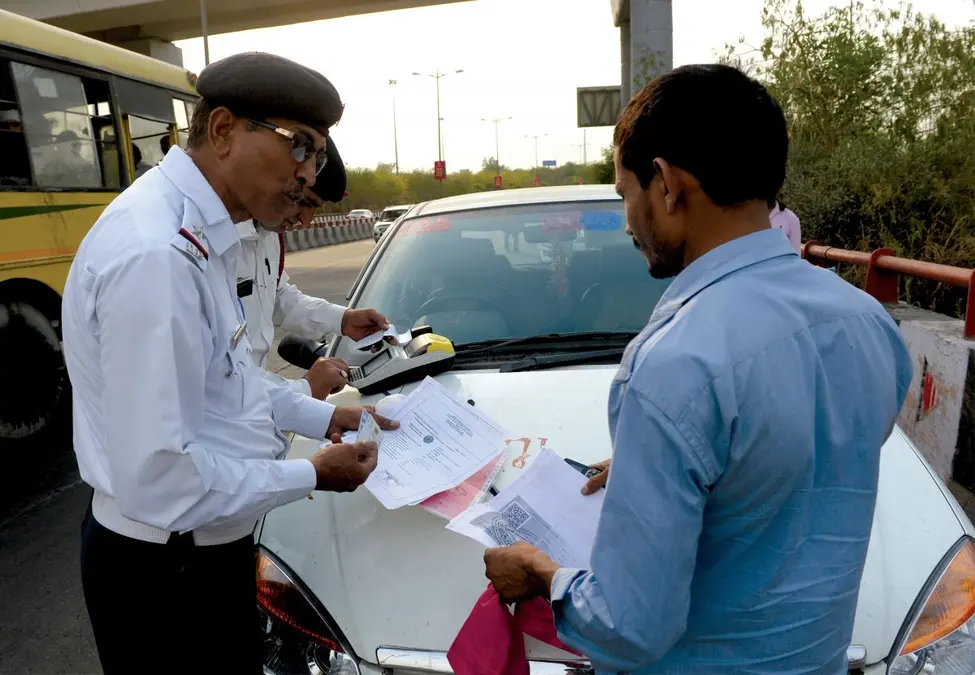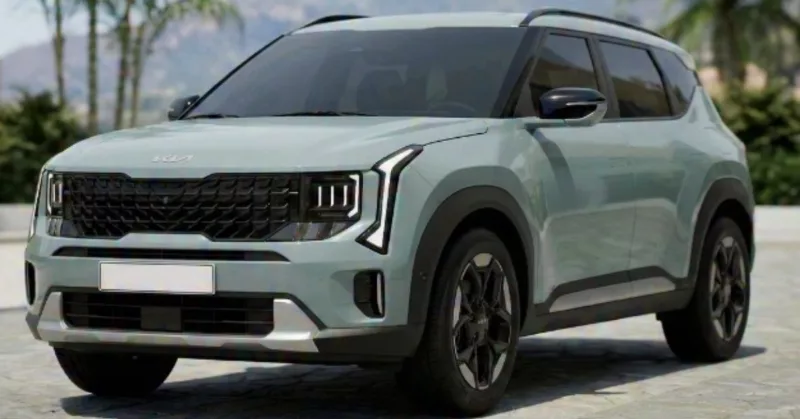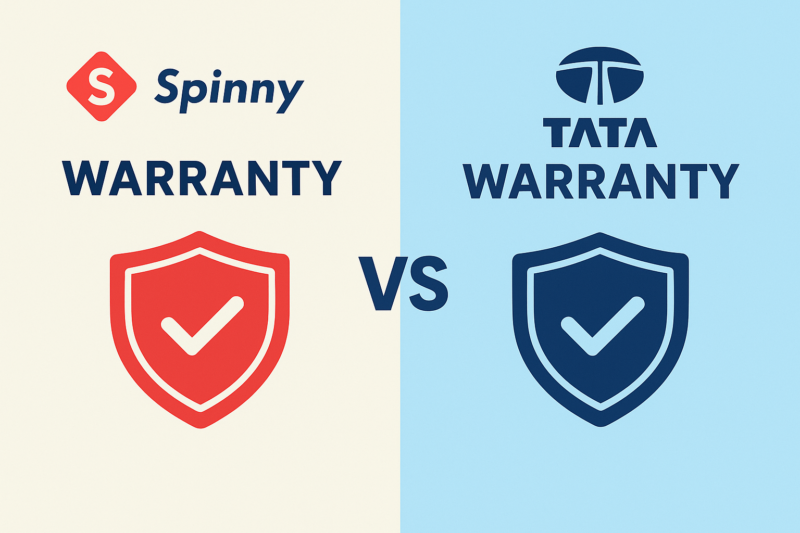RC transfer, or Registration Certificate transfer, is the process of changing the ownership of a vehicle in official records. In Karnataka, this procedure is crucial when buying or selling a second-hand car. It ensures that the legal ownership of the vehicle is properly documented, protecting both the buyer and seller from potential liabilities.
The RC transfer in Karnataka can prove challenging and time-consuming. Nonetheless, it requires knowledge of the process, types, and charges. The Regional Transport Office (RTO) oversees the RC transfer process in Karnataka, which is a mandatory step in any vehicle transaction. Here is everything you must know about the Karnataka RC transfer process.
What is RC Transfer and Why is it Important?
RC transfer refers to the official process of transferring a vehicle’s legal ownership from one individual to another. The car ownership can be transferred in case of the owner’s death, the vehicle’s auction, or the vehicle’s resale. Applications for the RC transfer in Karnataka can be submitted online via the Parivahan site or through the RTO.
Types of RC Transfer in Karnataka
There are different types of RC transfers in Karnataka you can avail. The top 3 types of RC transfer are as follows:
- Transfer of Ownership: The most frequent type of RC transfer is a transfer of ownership, which occurs when a car is sold or given as a gift to another individual.
- Transfer upon Death of Owner: A vehicle’s ownership is passed to the lawful heirs the moment the registered owner dies. In addition to fulfilling the required procedures, the heirs must notify the registering authorities.
- Transfer after Auction: The new buyer must receive ownership of a car that is sold at a public auction.
| Types | Features |
| Within-State Transfer | When both the buyer and seller reside in Karnataka |
| Inter-State Transfer | When either the buyer or seller is from outside Karnataka |
| Individual to Company Transfer | When an individually owned vehicle is transferred to a company |
| Company to Individual Transfer | When a company-owned vehicle is transferred to an individual |
Eligibility Criteria for RC Transfer
Before starting an RC transfer process in Karnataka, it’s essential to ensure that all necessary conditions are met. These criteria are designed to maintain the integrity of vehicle ownership records and ensure compliance with state regulations.
- The seller must be the registered owner of the vehicle.
- The buyer must be a resident of Karnataka (for within-state transfers).
- The vehicle should have valid insurance.
- All pending fines or taxes associated with the vehicle must be cleared.
- The vehicle should have a valid Pollution Under Control (PUC) certificate.
Documents Required for RC Transfer in Karnataka
Gathering the correct documentation is a crucial step in the RC transfer process. Having all the necessary papers ready can significantly speed up the procedure and help avoid potential delays. Here’s a comprehensive list of documents you’ll need to prepare:
- Form 28 – NOC for vehicles registered in another state along with PUC certificate, proof of address, insurance region/state certificate, and applicable fees
- Registration Certificate
- Tax Certificate
- Original RC
- Copy of GIR/Pan number or Form 60 or Form 61 (only for cars)
- Copy of valid insurance
- Copy of valid pollution under control certificate
- Two copies of: Form 29, Form 30, proof of buyer’s address
- Photo along with a fingerprint of the right-hand thumb which has been certified by a notary or a gazetted officer
Step-by-Step Process to Transfer Car Ownership
Transferring car ownership in Karnataka involves a structured process to ensure legal compliance. Understanding these steps is crucial for both buyers and sellers. Let’s walk through the procedure to transfer vehicle ownership smoothly:
- Seller fills out Form 29 and Form 30.
- the buyer and seller sign the sale agreement.
- Pay the required RC transfer fees.
- Submit all documents to the local RTO.
- RTO verifies the documents and processes the transfer.
- A new RC is issued in the buyer’s name.
RC Transfer Fees and Charges in Karnataka
Karnataka has set specific fees based on vehicle types, with additional charges for certain circumstances. Here’s a breakdown of the costs involved:
| Type of vehicles | Charge |
| Two-wheelers (within the state) | Rs. 350 |
| Four-wheelers (within the state) | Rs. 550 |
| Two-wheelers (from another state) | Rs. 2500 |
| Four-wheelers (from another state) | Rs. 5500 |
How to Apply for RC Transfer Online
Karnataka offers a convenient online method for RC transfer. This process simplifies the application and reduces the need for multiple visits to the RTO. Follow these steps to complete your RC transfer online:
1. Visit the official Parivahan website (parivahan.gov.in).
2. Click on Online Services and choose the ‘Vehicle-related services’ option.
3. Select Karnataka from the list of states.
4. Click on the ‘Vehicle Registration No.’ option.
5. Enter your vehicle registration number and click on ‘proceed’.
6. Now click on the ‘ Transfer of Ownership by Seller’ option.
7. Next, declare and click on ‘proceed’.
8. Enter the chassis number of your vehicle and hit on ‘VERIFY DETAILS’.
9. Now authenticate yourself with mobile OTP or Aadhar according to your choice.
10. Submit the OTP to proceed further. Now, click on the ‘Transfer of Ownership’ option.
11. Fill in the personal details. Tick the check box below and save.
12. Now repeat your steps up to step no. 4.
13. Click the ‘Transfer of Ownership by Buyers ‘ option.
14. Enter your application number generated at step no 10. Then click on ‘VERIFY DETAILS’.
15. Now generate OTP and submit. Fill in your address details.
16. Click on ‘pay now’ to complete the payment. Tick the check box and confirm your details.
17. Print the receipt in step one and complete steps 2 and 3 as per instructions.
18. Again, go to the home page and enter the vehicle registration number. Click on the ‘ status’ and choose ‘Know your Application Status.’
19. Enter your application number and submit the Captcha.
20. Now go to the home screen, enter the vehicle registration number, and choose ‘appointment’ and the next ‘book appointment’ option. Choose your dates accordingly.
Offline RC Transfer Process at the RTO
While online methods are increasingly popular, the traditional offline process remains an option for those who prefer in-person transactions. This method involves direct interaction with RTO officials. Here’s how to navigate the offline RC transfer process:
- Get the official documents you need from the seller, such as the RC, PUC, insurance certificate, Form 29, and Form 30.
- If the car is registered in another state, get a NOC.
- Fill out Form 29 and Form 30 with the correct information.
- Have the official documents checked by the RTO.
- Send the application, documents, and transfer fee to the RTO.
- Get a Motor Vehicle Inspector (MVI) to inspect the car.
- The transfer will be processed once the RTO has confirmed the documents and finished the inspection.
- Get the new RC in the new owner’s name from the RTO.
- Update the insurance policy to reflect the change of ownership.
No Objection Certificate (NOC) for RC Transfer
In certain situations, a No Objection Certificate is crucial for RC transfer. This certificate ensures there are no legal impediments to transferring the vehicle. Let’s explore when an NOC is necessary and how to obtain it:
- Transferring ownership to a person in another state.
- The vehicle is under hypothecation (loan).
To obtain an NOC:
- Apply at the RTO where the vehicle is registered.
- Submit proof of address for the new state (for inter-state transfers).
- Provide a letter from the financier clearing the loan (if applicable).
Inter-State RC Transfer: Transferring Ownership Across State Borders
Transferring a vehicle from one state to another involves additional steps and considerations. This process ensures the vehicle is properly registered in its new location. Here’s a guide to successfully transferring your vehicle’s registration across state lines:
- Complete Form 29 (Notification of Vehicle Ownership Transfer) and Form 30 (Application for Vehicle Ownership Transfer).
- Submit the necessary documents along with the fees to the RTO.
- Ensure the vehicle undergoes an inspection by the Motor Vehicle Inspector (MVI).
- Obtain the new Registration Certificate (RC) in the name of the new owner from the RTO.
- Update the insurance policy to reflect the new ownership information.
How Long Does the RC Transfer Process Take?
The duration of the RC transfer process can vary depending on several factors. Understanding the typical timelines can help you plan accordingly. Here’s what you can expect in terms of processing time:
- 7-14 days for within-state transfers
- 15-30 days for inter-state transfers
Actual time may vary based on RTO workload and document completeness.
Common Issues and How to Avoid Delays
While the RC transfer process is straightforward, certain issues can cause unexpected delays. Awareness of these potential pitfalls can help you navigate the process more smoothly. Here are some common problems and tips to avoid them:
- Incomplete documentation: Double-check all required papers before submission.
- Pending fines or taxes: Clear all dues before initiating the transfer.
- Mismatch in vehicle details: Ensure all information matches across documents.
- Expired insurance or PUC: Renew these before applying for transfer.
- Missing NOC for inter-state transfers: Obtain this from the original RTO in advance.
Verifying the Status of RC Transfer
After initiating the RC transfer process, it’s natural to want to track its progress. Karnataka RTO department provides a straightforward method to check the status of your application. Here’s how you can stay informed about your RC transfer:
- Visit the Karnataka Transport Department website.
- Enter the application number or vehicle number.
- Check the current status of your RC transfer application.
- For offline applications, visit the RTO with the acknowledgment slip.
Summary
RC transfer in Karnataka is a crucial process for legally transferring vehicle ownership. This procedure ensures that all legal and administrative requirements are met when a vehicle changes hands. By diligently following the steps outlined in this comprehensive guide, you can navigate the transfer process with confidence and ease.
Gathering all necessary documents is a critical part of the process. This includes forms, certificates, and identification proofs for both the buyer and seller. Being thorough in your document preparation can significantly streamline the transfer procedure and help avoid potential delays. By adhering to the guidelines provided and staying informed about the process, you can ensure a smooth and hassle-free ownership transfer.
FAQ’s
Q. Can I transfer RC online in Karnataka?
Yes, Karnataka provides an online RC transfer service through the official Transport Department website, making the process more convenient for vehicle owners.
Q. How much does RC transfer cost in Karnataka?
RC transfer fees in Karnataka range from Rs. 300 for two-wheelers to Rs. 1000 for heavy vehicles. Additional charges may apply depending on the specific situation.
Q. Is NOC mandatory for RC transfer within Karnataka?
NOC is not required for RC transfers within Karnataka. However, it’s mandatory for inter-state transfers or vehicles under loan agreements.
Q. What happens if I don’t transfer RC after buying a used car?
Failing to transfer the RC after purchasing a used car can result in legal problems, potential fines, and complications with insurance claims.
Q. Can I transfer RC if there are pending challans?
No, you must clear all pending challans and taxes before initiating the RC transfer process in Karnataka.





